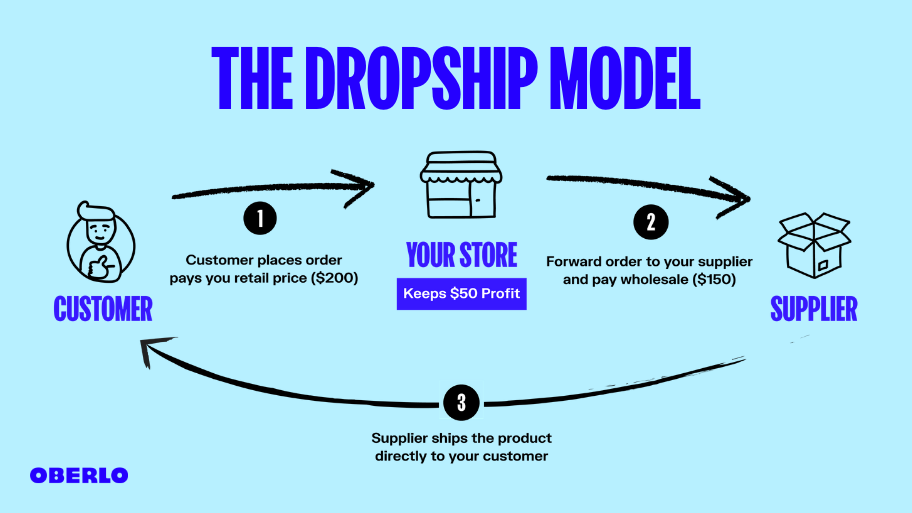
An asset manager is basically a financial professional who manages the company's savings and real estate to maximize value and reduce risk. Asset managers are employed by banks, insurance companies, foundations, and investment firms. They manage their client's portfolios based primarily on their goals and needs.
Asset management services are highly specialized. It involves the sale, purchase and evaluation of a company's assets. A team of asset managers and financial professionals usually does this. Some asset management companies specialize in investing in mutual funds, others invest in private sector financing through bond or equity purchases. Asset managers also determine the best investments for their clients based on their risk appetite. They make sure that any assumptions are based upon sound research. They can also predict how an asset will perform.
Asset managers are available to work for investment firms, banks, insurance providers, construction companies, and other companies. They could also work as independent businesses that manage assets in the interests of individuals, companies and organizations. These firms can take a percentage or combine services. While some asset management firms can only provide services for companies, others are able to offer services to wealthy individuals.

Asset management firms may be able to purchase large quantities of securities from a single location. They also have more favorable prices for trading commissions. To save money, they may bundle insurance policies with other services. They may also focus on a certain asset class, such as value investing or passive investing. They can invest in stocks and commodities, real estate, bonds or other investments.
Sometimes, an asset manager might also be registered as a financial advisor. This means they have completed the required courses and training in order to be a financial professional. They may also be able to work in senior financial roles. They also have higher salaries as asset managers. They might consider pursuing a master's or bachelor's degree in finance, accounting, or business in order to advance in their financial careers.
Asset managers usually need to have a bachelor’s degree and experience managing financial portfolios. They need to have a solid understanding of financial concepts as well as the skills required to make informed financial decisions. They should also be able to communicate well with others. They must maintain positive relationships with tenants and clients. They have to make strategic decisions about who they rent to. They need to be prepared for lease expiration and plan their leases strategically.
Asset management is growing as clients demand personal service. These firms may be able to help clients increase their wealth over the long-term and may take a portion of profits. Based on clients' portfolios, the investment fees they charge may range from a few basis point to a percentage profit.

Some asset management firms have a specialization in managing retirement money. Some firms focus on mutual funds, others are more familiar with institutional investors or hedge funds.
FAQ
Why is personal finance so important?
Anyone who is serious about financial success must be able to manage their finances. Our world is characterized by tight budgets and difficult decisions about how to spend it.
So why do we put off saving money? Is there something better to invest our time and effort on?
Both yes and no. Yes, as most people feel guilty about saving their money. No, because the more money you earn, the more opportunities you have to invest.
Spending your money wisely will be possible as long as you remain focused on the larger picture.
You must learn to control your emotions in order to be financially successful. Negative thoughts will keep you from having positive thoughts.
Unrealistic expectations may also be a factor in how much you will end up with. This could be because you don't know how your finances should be managed.
These skills will allow you to move on to the next step: learning how to budget.
Budgeting refers to the practice of setting aside a portion each month for future expenses. Planning will help you avoid unnecessary purchases and make sure you have enough money to pay your bills.
So now that you know how to allocate your resources effectively, you can begin to look forward to a brighter financial future.
How to build a passive income stream?
To generate consistent earnings from one source, you have to understand why people buy what they buy.
It is important to understand people's needs and wants. Learn how to connect with people to make them feel valued and be able to sell to them.
Next, you need to know how to convert leads to sales. The final step is to master customer service in order to keep happy clients.
Every product or service has a buyer, even though you may not be aware of it. And if you know who that buyer is, you can design your entire business around serving him/her.
To become a millionaire takes hard work. It takes even more work to become a billionaire. Why? Why?
Then, you will need to become millionaire. And finally, you have to become a billionaire. It is the same for becoming a billionaire.
How does one become a billionaire, you ask? It all starts with becoming a millionaire. All you have to do in order achieve this is to make money.
You have to get going before you can start earning money. Let's look at how to get going.
Which side hustles are most lucrative?
Side hustles can be described as any extra income stream that supplements your main source of income.
Side hustles can be very beneficial because they allow you to make extra money and provide fun activities.
Side hustles are a way to make more money, save time, and increase your earning power.
There are two types of side hustles: passive and active. Side hustles that are passive include side businesses such as blogging, e-commerce and freelancing. You can also do side hustles like tutoring and dog walking.
Side hustles that work for you are easy to manage and make sense. Start a fitness company if you are passionate about working out. You might consider working as a freelance landscaper if you love spending time outdoors.
There are many side hustles that you can do. Consider side hustles where you spend your time already, such as volunteering or teaching classes.
One example is to open your own graphic design studio, if graphic design experience is something you have. Perhaps you're an experienced writer so why not go ghostwriting?
Be sure to research thoroughly before you start any side hustle. When the opportunity presents itself, be prepared to jump in and seize it.
Side hustles don't have to be about making money. Side hustles can be about creating wealth or freedom.
And with so many ways to earn money today, there's no excuse to start one!
What is the distinction between passive income, and active income.
Passive income can be defined as a way to make passive income without any work. Active income requires effort and hard work.
Active income is when you create value for someone else. You earn money when you offer a product or service that someone needs. Selling products online, writing ebooks, creating websites, and advertising your business are just a few examples.
Passive income is great because it allows you to focus on more important things while still making money. But most people aren't interested in working for themselves. Instead, they decide to focus their energy and time on passive income.
The problem with passive income is that it doesn't last forever. You might run out of money if you don't generate passive income in the right time.
Also, you could burn out if passive income is not generated in a timely manner. You should start immediately. You'll miss out on the best opportunities to maximize your earning potential if you wait to build passive income.
There are three types to passive income streams.
-
Businesses - these include owning a franchise, starting a blog, becoming a freelancer, and renting out the property such as real estate
-
These include stocks and bonds and mutual funds. ETFs are also investments.
-
Real Estate includes flipping houses, purchasing land and renting properties.
What is personal finance?
Personal finance refers to managing your finances in order to achieve your personal and professional goals. This means understanding where your money goes and what you can afford. And, it also requires balancing the needs of your wants against your financial goals.
If you master these skills, you can be financially independent. This means you are no longer dependent on anyone to take care of you. You can forget about worrying about rent, utilities, or any other monthly bills.
Not only will it help you to get ahead, but also how to manage your money. It makes you happier. If you are happy with your finances, you will be less stressed and more likely to get promoted quickly.
So who cares about personal finance? Everyone does! Personal finance is one the most sought-after topics on the Internet. According to Google Trends, searches for "personal finance" increased by 1,600% between 2004 and 2014.
Today's smartphone users use their phones to compare prices, track budgets and build wealth. These people read blogs like this one and watch YouTube videos about personal finance. They also listen to podcasts on investing.
In fact, according to Bankrate.com, Americans spend an average of four hours a day watching TV, listening to music, playing video games, surfing the Web, reading books, and talking with friends. There are only two hours each day that can be used to do all the important things.
If you are able to master personal finance, you will be able make the most of it.
How much debt is too much?
It is essential to remember that money is not unlimited. Spending more than what you earn can lead to cash running out. This is because savings takes time to grow. If you are running out of funds, cut back on your spending.
But how much is too much? While there is no one right answer, the general rule of thumb is to live within 10% your income. You'll never go broke, even after years and years of saving.
If you earn $10,000 per year, this means you should not spend more than $1,000 per month. If you make $20,000 per year, you shouldn't spend more then $2,000 each month. You shouldn't spend more that $5,000 per month if your monthly income is $50,000
The key here is to pay off debts as quickly as possible. This includes student loans, credit cards, car payments, and student loans. When these are paid off you'll have money left to save.
You should consider where you plan to put your excess income. If you decide to put your money toward stocks or bonds, you could lose money if the stock market falls. If you save your money, interest will compound over time.
Let's suppose, for instance, that you put aside $100 every week to save. This would add up over five years to $500. Over six years, that would amount to $1,000. In eight years, you'd have nearly $3,000 in the bank. You'd have close to $13,000 saved by the time you hit ten years.
You'll have almost $40,000 sitting in your savings account at the end of fifteen years. That's quite impressive. If you had made the same investment in the stock markets during the same time, you would have earned interest. You'd have more than $57,000 instead of $40,000
This is why it is so important to understand how to properly manage your finances. You might end up with more money than you expected.
Statistics
- 4 in 5 Americans (80%) say they put off financial decisions, and 35% of those delaying those decisions say it's because they feel overwhelmed at the thought of them. (nerdwallet.com)
- These websites say they will pay you up to 92% of the card's value. (nerdwallet.com)
- While 39% of Americans say they feel anxious when making financial decisions, according to the survey, 30% feel confident and 17% excited, suggesting it is possible to feel good when navigating your finances. (nerdwallet.com)
- Mortgage rates hit 7.08%, Freddie Mac says Most Popular (marketwatch.com)
- Shares of Six Flags Entertainment Corp. dove 4.7% in premarket trading Thursday, after the theme park operator reported third-quarter profit and r... (marketwatch.com)
External Links
How To
How passive income can improve cash flow
There are many ways to make money online, and you don't need to be hard working. Instead, passive income can be made from your home.
Automating your business could be a benefit to an already existing company. If you are thinking of starting a business, you might find that automating parts of your workflow can help you save time and increase productivity.
The more automated your business becomes, the more efficient it will become. This will enable you to devote more time to growing your business instead of running it.
Outsourcing tasks is a great method to automate them. Outsourcing allows you to focus on what matters most when running your business. You are effectively outsourcing a task and delegating it.
You can now focus on what is important to your business while someone else takes care of the details. Because you don't have to worry so much about the details, outsourcing makes it easier for your business to grow.
Another option is to turn your hobby into a side hustle. You can also use your talents to create an online product or service. This will help you generate additional cash flow.
Write articles, for example. You can publish articles on many sites. These websites offer a way to make extra money by publishing articles.
Also, you can create videos. You can upload videos to YouTube and Vimeo via many platforms. When you upload these videos, you'll get traffic to both your website and social networks.
Investing in stocks and shares is another way to make money. Investing stocks and shares is similar investment to real estate. However, instead of paying rent, you are paid dividends.
They are included in your dividend when shares you buy are purchased. The amount of the dividend depends on how much stock you buy.
If you decide to sell your shares, you will be able to reinvest the proceeds into new shares. You will keep receiving dividends for as long as you live.